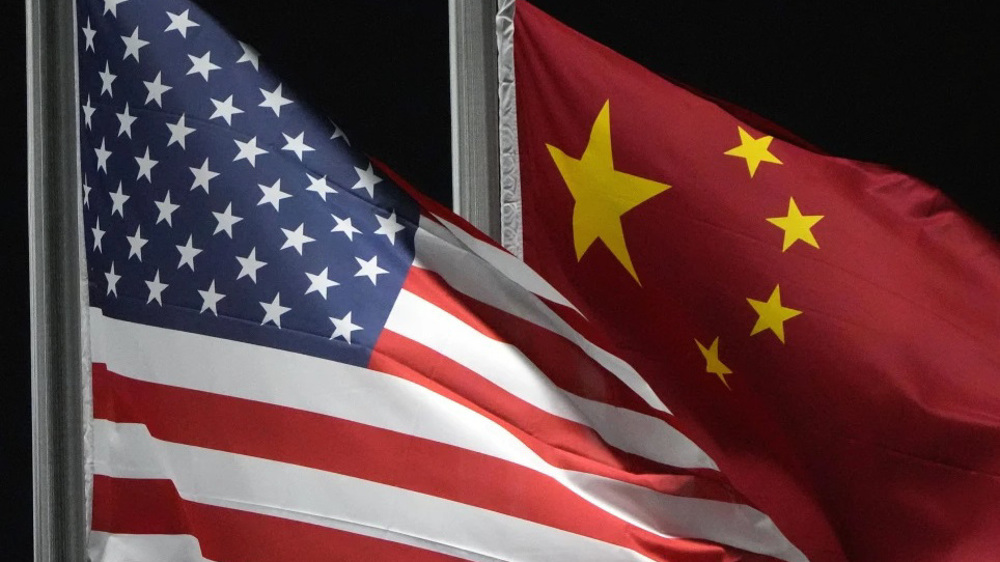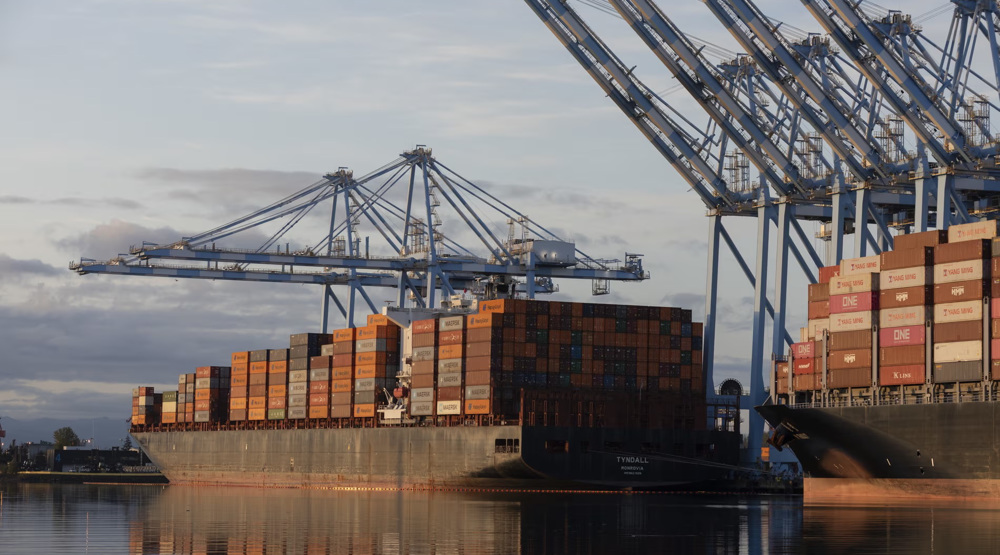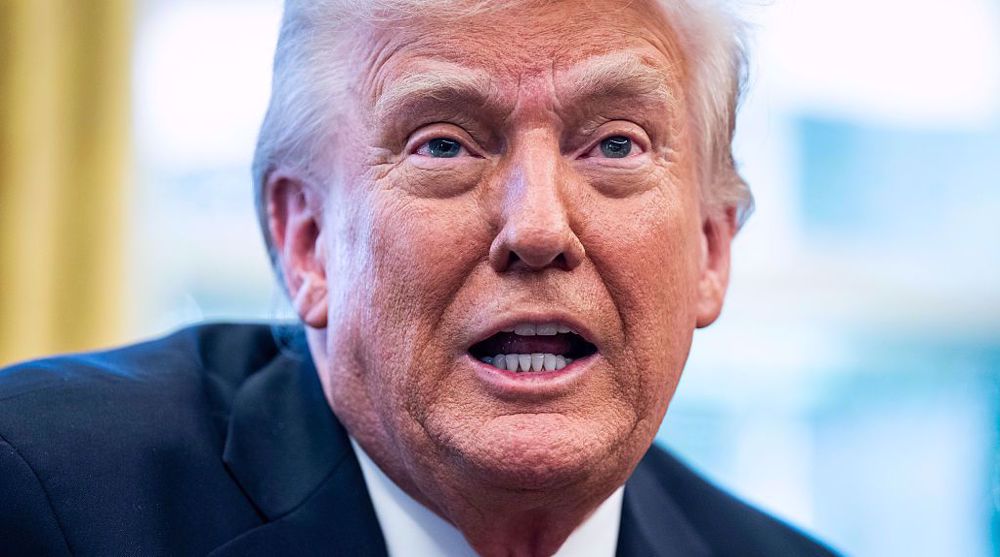China enacts tariffs against US, says Trump’s trade war ‘will end in failure’
China's 84% retaliatory tariffs on US imports have come into force hours after the US president insisted he would further increase tariffs on Chinese exports to 125%.
A day after Trump’s administration made an announcement about pausing his steepest tariffs on dozens of countries for 90 days, Beijing on Thursday announced that Donald Trump's trade war "will end in failure" and enacted its due tariffs against imports from the US.
The Trump administration excluded China from the U-turn list after the giant Asian economy refused to step back from its retaliatory measures.
China’s foreign ministry said it had no intention to fight “but will not fear if the United States continues its tariff threats.”
“The US cause doesn’t win the support of the people and will end in failure,” a ministry spokesperson, Lin Jian, said at a press conference.
The Ministry of Commerce of the People’s Republic of China also commented on the matter, saying “the door to dialogue is open.”
The ministry added, “We hope the US will meet China halfway, and, based on the principles of mutual respect, peaceful coexistence and win-win cooperation, properly resolve differences through dialogue and consultation.”
A China Daily editorial published on Wednesday night said, “caving into the US pressure is out of the question for Beijing,” reaffirming China’s consensus to take the US head-on.
“Profits of export-oriented industries will take a blow, and the resulting decline in manufacturing investment and consumer sentiment will dampen economic growth. But it also knows that kowtowing to the US’s tariff bullying will gain it nothing, given that it is no secret the US is now intent on cutting China out of its consumer market and reshaping the global supply chains to serve its own narrow interests,” the editorial said.
Chinese companies selling products on Amazon were preparing to raise prices for the US or quit that market because of the “unprecedented blow” from the tariffs, the head of China’s largest e-commerce association said.
Some markets experienced a slight recovery after Trump’s sudden pause, following the most unstable period in financial markets since the coronavirus pandemic.
In a search to reduce the US trade deficit through the so-called “reciprocal tariffs,” Trump’s 90-day pause maintained the baseline global 10% tariff but halted the steeper reciprocal tariffs.
According to the US president, the exclusionary policy towards China has taken place “because it did retaliate.”
“I thought that people were jumping a little bit out of line; they were getting yippy, you know,” Trump said on Wednesday when asked why he had announced the pause.
The Nikkei 225 in Japan was up 7.2% on Thursday, while in Seoul, the Kospi was up more than 5%. In Australia, the ASX 200 jumped more than 6%. Hong Kong’s Hang Seng Index climbed 2.69%, while the Shanghai Composite Index jumped 1.29%.
On Wednesday, the head of the World Trade Organization warned the world’s two largest economies about the escalation of the US-initiated trade war, saying it could cut trade in goods between the two countries by 80%.
Given that they account for 3% of world trade, the conflict could “severely damage the global economic outlook,” Ngozi Okonjo-Iweala said.
The European Union has embraced the pause, announcing on Thursday it would withdraw its new reciprocal tariffs against the US for 90 days in an attempt to allow time for negotiations.
EU member states had approved retaliatory 25% tariffs on up to $23 billion in US goods – targeting farm produce and products from Republican states – from next week, in response to sweeping steel and aluminium tariffs imposed by Donald Trump’s administration.
Japan also hopes the US will change its approach. “We received the latest US announcement positively,” Japan’s chief government spokesperson, Yoshimasa Hayashi, has said.
“We continue to strongly demand that the United States reviews measures on its reciprocal tariffs, tariffs on steel and aluminum, and tariffs on vehicles and auto parts,” he added.
China had announced it would enact 84% tariffs on US products from Thursday. It has put 18 US companies on trade restriction lists and brought in other countermeasures.
It was a retaliatory move against Trump’s “liberation day” announcement of a global tariff regime, which added a 34% tariff to the 20% already levied on China, making the Asian country ratify reciprocal tariffs of 34%.
After China’s refusal to withdraw the tariffs, the US President pledged a levy of 104% and then 125% against Chinese imports while announcing a reprieve elsewhere.
At some point, hopefully soon, China will realize that the days of ripping off the USA and other countries are no longer sustainable or acceptable,” Donald Trump said as he announced the latest US tariff assault on China.
He claimed China “wants to make a deal, they just don’t know how quite to go about it. They’re proud people. President Xi [Jinping] is a proud man. I know him very well. They don’t know quite how to go about it, but they’ll figure it out."
China appears to be seeking to shore up trading agreements away from the US by approaching other countries, including Malaysia, the European Union member states, and Australia.
China’s commerce minister, Wang Wentao, has urged his Malaysian counterpart to strengthen coordination with trading partners in the Association of Southeast Asian Nations (ASEAN).
He also spoke to the EU trade and security commissioner on Tuesday, saying China wants to expand trade with Europe and that it would immediately restart negotiations on electric vehicles.
Australia did not seem comfortable with China’s attempts to “join hands” despite its heavy reliance on China for trade.
“We’re not about to make common cause with China – that’s not what’s going to happen here,” the Australian defense minister Richard Marles said, indicating a deep alliance between Australia and the United States.
“We don’t want to see a trade war between America and China, to be clear, but our focus is on actually diversifying our trade.”
Despite Donald Trump’s dismissal of market volatility, he has wavered on tariffs as predictions of a US recession grew stronger.
The US president announced his decision at the same time his US Trade Representative, Jamieson Greer, gave a congressional hearing.
“It looks like your boss just pulled the rug out from under you,” the Democratic representative Steven Horsford of Nevada told Greer. “This is amateur hour, and it needs to stop.”

Microsoft collaboration in Gaza genocide

Moroccan port workers protest Maersk ship carrying F-35 parts to Israel

China sanctions US figures over ‘gross interference’ in Beijing’s affairs
Yemen's president orders nationwide ban on all US products
France detains Iranian journalist amid crackdown on pro-Palestinian voices
VIDEO | Digital censorship amid aggression: Google disables Street View in West Bank
Remembering Sheikh Bahai, Iran's iconic theologian, astronomer, engineering genius
India suspends water treaty with Pakistan after terror attack
Manhunt underway for gunmen in Kashmir attack as death toll rises to 26
VIDEO | Middle East alliances: Where do they stand now?
Iran’s FM warns of Israeli attempts to derail diplomacy through various tactics









 This makes it easy to access the Press TV website
This makes it easy to access the Press TV website